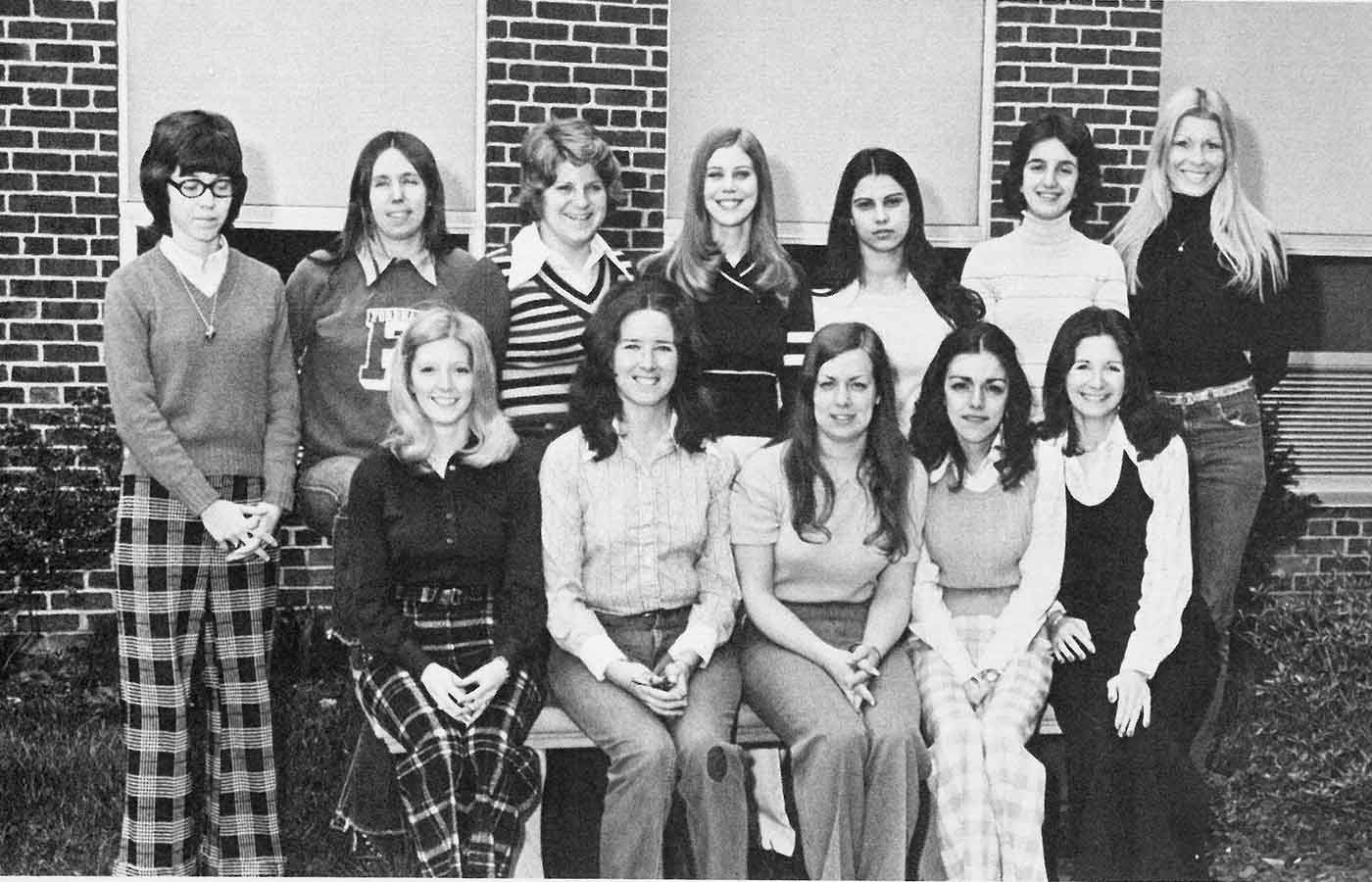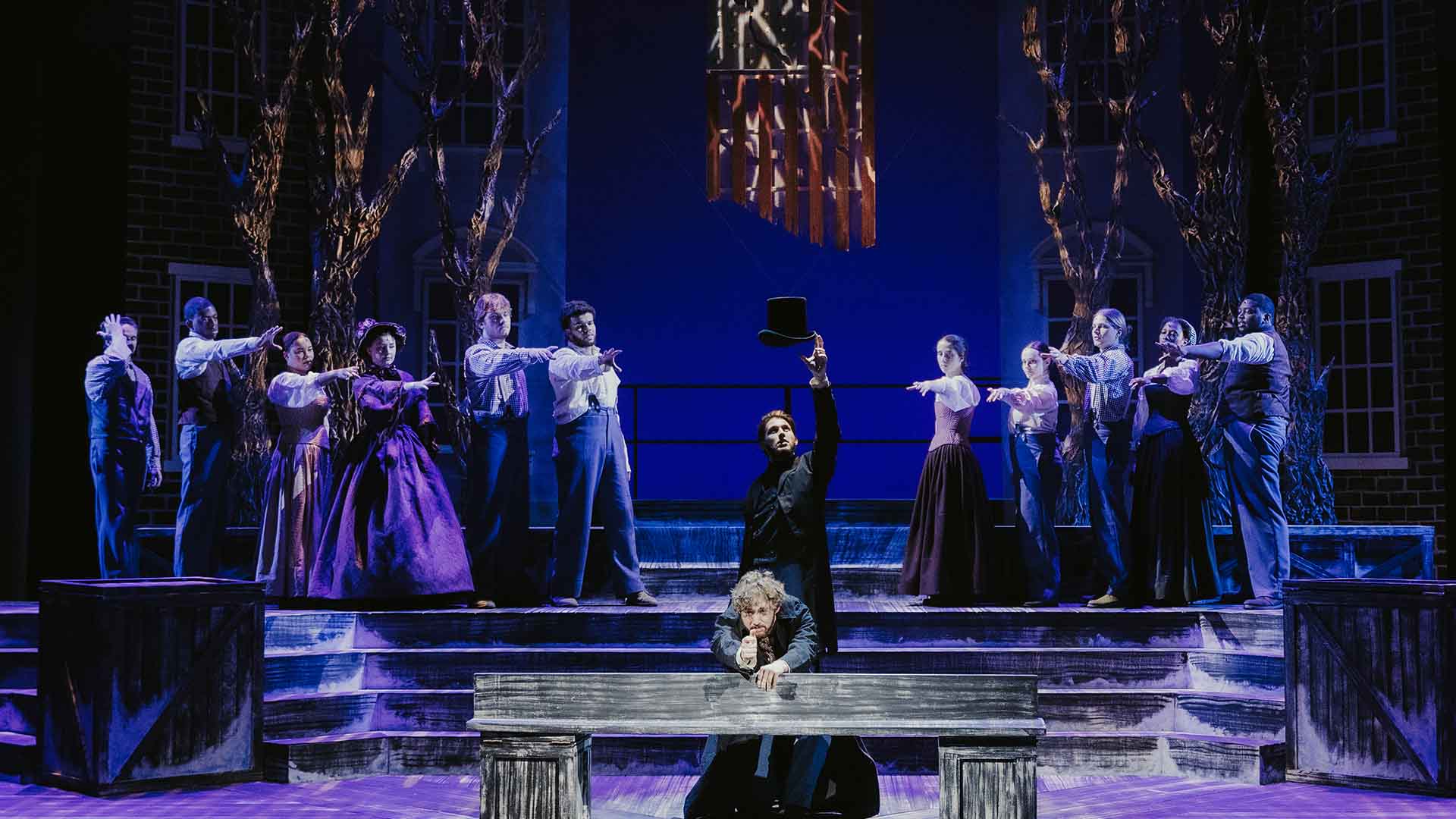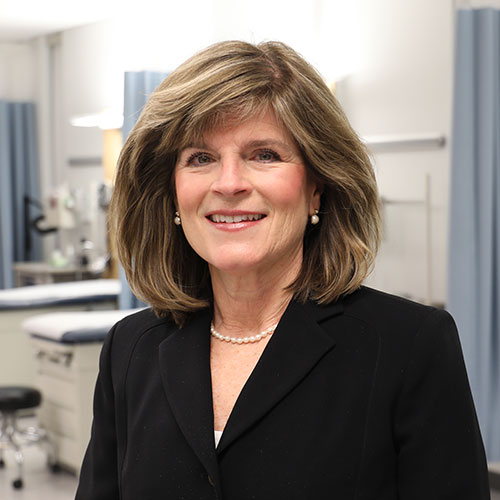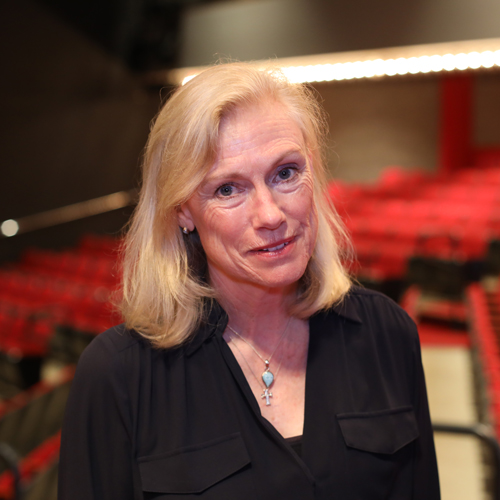News
50 Years Later: A Celebration of Women at DeSales

Intramural Athletic Committee of 1974
It’s been nearly five decades since Diane Varra (née Muller) became a history maker to the tune of “Pomp and Circumstance.”
“It’s amazing. The 50 years, they went by so fast,” she says. In 1972, Varra became the first woman to graduate from DeSales University, known then as Allentown College of St. Francis de Sales.
 Varra (pictured right) had transferred to the Center Valley campus to begin her junior year in 1970, the same year that the school went co-ed and welcomed 35 women in its freshman class. Varra says she had no problem acclimating to the new environment or getting along with her predominantly male peers; as the oldest of four children in a Navy family that moved often according to military reassignments, she mastered the art of fitting in at a young age.
Varra (pictured right) had transferred to the Center Valley campus to begin her junior year in 1970, the same year that the school went co-ed and welcomed 35 women in its freshman class. Varra says she had no problem acclimating to the new environment or getting along with her predominantly male peers; as the oldest of four children in a Navy family that moved often according to military reassignments, she mastered the art of fitting in at a young age.
In fact, by the time she earned her diploma at St. Rose High School in Belmar, New Jersey, she had attended 13 schools all over the country and in the U.S. territory of Guam.
Choosing to continue her higher education at DeSales was an easy decision for Varra, who was raised in the Roman Catholic faith and wanted to be part of a community that valued her beliefs. The school’s smaller, more intimate campus also appealed to her, and word-of-mouth reviews from other students helped seal the deal. “They just talked about it and said it was so great and that made me want to go there,” Varra says.
Living on campus became an option for women in the school’s second year as a co-educational institution. Varra wasn’t able to afford the room and board, but says the school connected her with a nearby family with whom she stayed during her two years as a student. According to Varra, even without the on-campus residential experience, she was able to form strong friendships with her fellow students and teachers. “I was very accepted. The whole college was just like family,” she says. “You didn’t feel like a number. Everybody was excited to be there.”
When Varra wrapped up her studies in 1972, earning a bachelor’s degree in English with a minor in Spanish, she was the only woman to march across the stage during the commencement ceremony. But she doesn’t consider herself a pioneer. “The freshman women, they were the pioneers,” she says. “They changed the college.”
Women have notched many more firsts at the school since Varra’s days on campus, and some of those trailblazers are still very much a part of the DeSales family today. Anne Lewis is a 1980 graduate of the theatre program who returned as an adjunct professor in 1998 before becoming a full-time faculty member and finally head of the division of performing arts—the first woman and alumna to hold that title.

From left to right: Mary Pat (Dean) Tait '81, Carolyn (Ventello) Seaton '81, and Mary Elizabeth Doyle-Tadduni '81
Mary Elizabeth Doyle-Tadduni, Ph.D., (pictured above, right) a 1981 graduate, is the first female to lead the division of nursing, a role she has held since 2012. During her time as a student, she decided to run for class president. “I thought, ‘I’m going to give this a shot. Why not?’” she recalls. Her successful campaign made her the first woman at DeSales to hold the title, and she credits then President Rev. Daniel Gambet, OSFS, with teaching her the meaning of leadership.
Both women can reflect on the contrasts between their school days several decades ago and their experience as seasoned faculty members now. “It was a completely different campus at that time,” says Doyle-Tadduni, recalling her time as an undergrad. Adds Lewis: “Most of the faculty were males.” Female students were still the minority. “That was the world [then] and it was fine,” Lewis says.
That’s not to say women weren’t a force to be reckoned with, even during the school’s earliest days. Doyle-Tadduni names a former instructor as one of her biggest role models: Caroline Hollshwandner, Ph.D., founded the nursing program in 1974 and served as its chair for many years. She passed away late last year at the age of 102. “She expected perfection and quality from all of us as students,” says Doyle-Tadduni. “She always set the bar high, which was something for us to emulate.”
Linda Zerbe, vice president for student life at DeSales, says she looked up to Margaret Kender, one of the school’s first female staff members who retired as vice president of student affairs in 1997: “She helped me navigate a world that was different than a lot of universities.” Zerbe was the director of housing and residence life from 1984 to 1989 before returning as dean of students in 2005. She says she always felt heard, even in those early days. “I felt like we could be creative, innovative. As a woman, I felt like I had a voice around the table.”
Now, more than 50 years after Varra and nearly three dozen other young women ushered in a new era at DeSales, female students outnumber their male counterparts on campus—60 percent to 40 percent—ensuring that the feminine perspective is well represented. “It’s a different energy, it’s a different viewpoint,” Lewis says. “Men and women are different. We do ourselves a disservice when we try to make ourselves the same.”
But what does remain the same is DeSales’ commitment to ensuring that everyone is provided the tools and resources to thrive during their school days and beyond. “We want to be able to empower all of our students,” Zerbe says. “It doesn’t matter what gender you are.”
Varra, who’s now 76 years old, pursued several careers and other interests after graduating from DeSales, including elementary school teacher, dog groomer, kennel owner, and head of the CCD program at St. Paul’s Catholic Church in Allentown, where she resides. She was also active in ministry services at Lehigh County Prison for many years. Most recently, Varra has returned to DeSales to attend some of the school’s theatre productions. She marvels at the changes she sees on campus.
“We used to have all of our classes in one building,” she says. “I think it’s great that it’s grown so much.” The title of first female alumna doesn’t seem nearly as important to her as the experiences she had while earning it. “I look back [at those years] with fondness,” she says. “They were the most memorable years of my life.”






